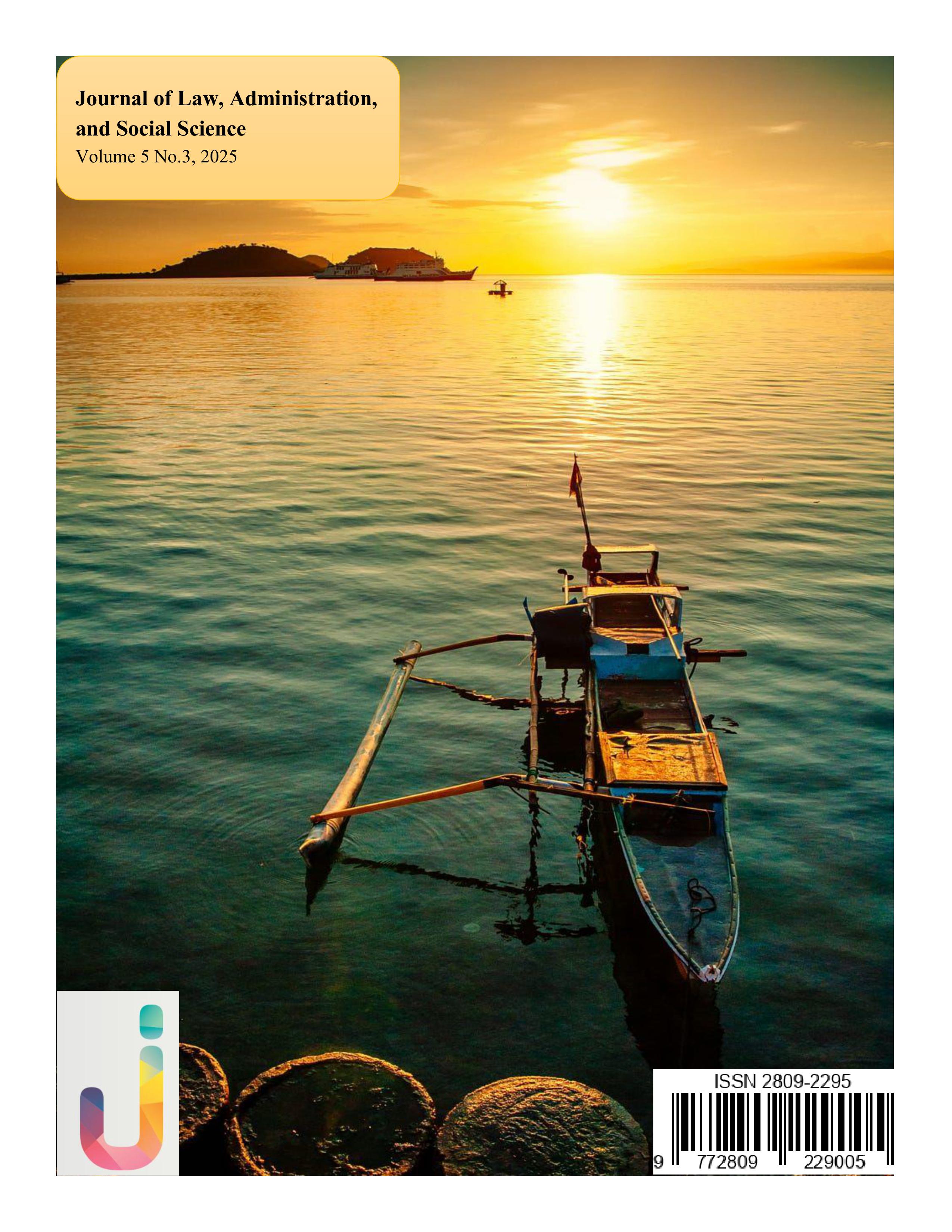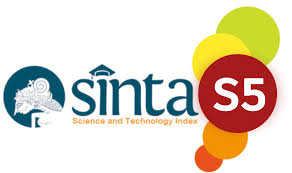Pengaruh pengalaman prestasi non-akademik terhadap Indeks Prestasi Kumulatif (IPK) mahasiswa PKN STAN
DOI:
https://doi.org/10.54957/jolas.v5i3.1738Keywords:
IPK, Prestasi non-akademik, Soft skillsAbstract
Politeknik Keuangan Negara STAN (PKN STAN) menyelenggarakan pendidikan di bidang keuangan negara untuk mendidik calon pegawai negeri sipil dengan keahlian khusus, seperti akuntansi, perpajakan, perbendaharaan negara, kepabeanan dan cukai, serta pengelolaan aset dan piutang. Sebagai institusi pendidikan, PKN STAN memiliki tanggung jawab untuk memfasilitasi kegiatan akademik maupun non-akademik agar proses pendidikan berlangsung secara optimal. Berangkat dari beragam kesimpulan dalam penelitian sebelumnya mengenai pengaruh prestasi non-akademik terhadap IPK, penelitian ini bertujuan untuk mengkaji lebih dalam hubungan antara pengalaman prestasi non-akademik dengan Indeks Prestasi (IP) mahasiswa. Penelitian ini menggunakan pendekatan mixed-methods concurrent embedded, dengan metode kuantitatif sebagai metode utama dan kualitatif sebagai pelengkap. Hasilnya menunjukkan bahwa mahasiswa PKN STAN memiliki berbagai pengalaman prestasi non-akademik yang dapat dikelompokkan ke dalam sebelas kategori, yaitu pengurus OSIS, musik, kerohanian, paskibra, PMR, seni, ICT, jurnalis, KIR, bahasa, dan lainnya. Uji hipotesis menunjukkan tidak terdapat perbedaan signifikan IP antara mahasiswa yang memiliki prestasi non-akademik dengan yang tidak memilikinya. Namun, hasil kualitatif mengindikasikan bahwa beberapa aspek dalam pengalaman non-akademik dapat menjadi pendorong mahasiswa untuk mencapai performa akademik terbaiknya.
References
Akpınar, T., & Gün, S. (2016). Testing the human capital development model: the case of apprenticeships in Turkey. International Journal of Training and Development, 20(3), 214–223. https://doi.org/10.1111/ijtd.12084
Baran, M. L. (2020a). It is All in the Design. In Cognitive Analytics (pp. 24–36). IGI Global. https://doi.org/10.4018/978-1-7998-2460-2.ch003
Baran, M. L. (2020b). Mixed Methods Research Design (pp. 26–52). https://doi.org/10.4018/978-1-7998-1025-4.ch002
Baran, M. L. (2022). Mixed Methods Research Design. In Research Anthology on Innovative Research Methodologies and Utilization Across Multiple Disciplines (pp. 312–333). IGI Global. https://doi.org/10.4018/978-1-6684-3881-7.ch017
Bartolucci, F., Bacci, S., & Gnaldi, M. (2015). Statistical Analysis of Questionnaires. Chapman and Hall/CRC. https://doi.org/10.1201/b18735
Baruch, Y., & Blenkinsopp, J. (2007). Business Education as a Career Choice. In Career Choice in Management and Entrepreneurship. Edward Elgar Publishing. https://doi.org/10.4337/9781847208828.00023
Benedetti, R., Dickson, M. M., Espa, G., Pantalone, F., & Piersimoni, F. (2022). A simulated annealing-based algorithm for selecting balanced samples. Computational Statistics, 37(1), 491–505. https://doi.org/10.1007/s00180-021-01113-3
Cherchye, L., De Rock, B., & Vermeulen, F. (2015). A simple identification strategy for Gary Becker’s time allocation model. Economics Letters, 137, 187–190. https://doi.org/10.1016/j.econlet.2015.11.006
Chiappori, P., & Lewbel, A. (2015). Gary Becker’s a Theory of the Allocation of Time. The Economic Journal, 125(583), 410–442. https://doi.org/10.1111/ecoj.12157
Croucher, S. M., & Cronn-Mills, D. (2024). Interviewing. In Understanding Communication Research Methods (pp. 111–126). Routledge. https://doi.org/10.4324/9781003432173-12
Darnton, G. (2023). Likert scales and questions: uses and abuses. European Conference on Research Methodology for Business and Management Studies, 22(1), 44–49. https://doi.org/10.34190/ecrm.22.1.1748
Haghighat, M. D., & Knifsend, C. A. (2019). The Longitudinal Influence of 10th Grade Extracurricular Activity Involvement: Implications for 12th Grade Academic Practices and Future Educational Attainment. Journal of Youth and Adolescence, 48(3), 609–619. https://doi.org/10.1007/s10964-018-0947-x
Harolds, J. A. (2020). Quality and Safety in Healthcare, Part LV. Clinical Nuclear Medicine, 45(2), 123–124. https://doi.org/10.1097/RLU.0000000000002714
Ho, M.-J. (2014). The effects of leadership involvement and part-time employment on pharmacy student academic performance. Pharmacy Education.
Kennedy, A., & Wang, S. (2025). Analysis of variance. In Translational Urology (pp. 121–124). Elsevier. https://doi.org/10.1016/B978-0-323-90186-4.00041-9
Kumaraswamy, S. (2019). Promotion of Students Participation and Academic Achievement in Large Classes: An Action Research Report. International Journal of Instruction, 12(2), 369–382. https://doi.org/10.29333/iji.2019.12224a
Liu, T., & Taresh, S. (2024). Balancing Athletic and Academic Excellence: A Quantitative Study of Student-Athletes’ Time Management Strategies. Journal of Ecohumanism, 3(7), 4004–4022. https://doi.org/10.62754/joe.v3i7.4520
Rao, U. M., Ellomalay, S., Lourdsamy, P., Sivachandran, J., & Raj, N. B. (2018). Relationship between Sports Participation and Academic Performance among Medical Students of Universiti Sultan Zainal Abidin. Research Journal of Pharmacy and Technology, 11(8), 3737. https://doi.org/10.5958/0974-360X.2018.00685.6
Wilson, O. W. A., Walters, S. R., Naylor, M. E., & Clarke, J. C. (2021). Physical Activity and Associated Constraints Following the Transition From High School to University. Recreational Sports Journal, 45(1), 52–60. https://doi.org/10.1177/1558866121995138
Zacherman, A., & Foubert, J. (2014). The Relationship Between Engagement in Cocurricular Activities and Academic Performance: Exploring Gender Differences. Journal of Student Affairs Research and Practice, 51(2), 157–169. https://doi.org/10.1515/jsarp-2014-0016
Downloads
Published
How to Cite
Issue
Section
License
Copyright (c) 2025 Irwan Aribowo, Riko Riandoko

This work is licensed under a Creative Commons Attribution 4.0 International License.











